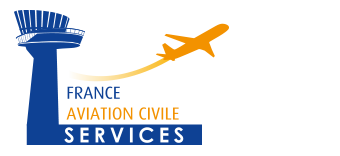Contributing to European Cooperation in Aviation
As you may know, Europe has been pursuing an active policy of cooperation throughout the world for many years. To this end, it relies on the know-how and skills of various stakeholders. Through two framework contracts, one with the Civil Aviation Authorities and the other with Industry, EASA relies on various partners to carry out its technical cooperation programme.
France Aviation Civile Services has been actively participating in this cooperation dynamic for about 3 years now through various projects. The process to be selected is difficult and demanding: we must first be able to demonstrate the ability to respond to an RFS (Request For Service) in record time within our consortium (Bureau Veritas, IATA, INECO and FRACS) and then with EASA, all this in an extremely short time (between 5 and 10 days).
We were very happy to win varied and interesting RFSs, some of which included familiarization training with specific regulatory aspects, a study on the harmonization of airworthiness regulations in the ASEAN area, support for the implementation of EOR (Established On RNP) procedures in China or more recently a study on the operationalization of RSOOs (Regional Safety Oversight Organisation) in the AFI region which is underway. We have also been involved in the areas of airworthiness, licensing and maintenance centres.
FRACS also works alongside ENAC and the APAVE group on the training of EASA staff, for instance in the domain of EFB (Electronic Flight Bags).
The diversity of our expertise and its ability to address Authorities responsibilities as well as those of the operators are strong assets of FRACS.
These studies and projects allow us to promote our expertise, to put it at the service of Europe’s influence throughout the world, but also to increase it by meeting demanding specifications. Responding to all these RFS requires significant energy and great efficiency in identifying experts capable of meeting the constraints of the project and in developing in a very short time a response adapted to the request. Each project is also evaluated, and this feedback is invaluable to us to further improve the quality of the services we provide. Finally, the highly competitive nature of the process forces us to look for the best way to meet the objectives at the lowest cost without sacrificing the quality of services, which remains our priority.
Beyond the RFS themselves, this dynamic of cooperation has also allowed us to work well within the consortium led by Bureau Veritas and to develop effective working relationships with the other partners in the consortium. Our partners may be our competitors on some subjects, but our offers may also complement each other on others.



